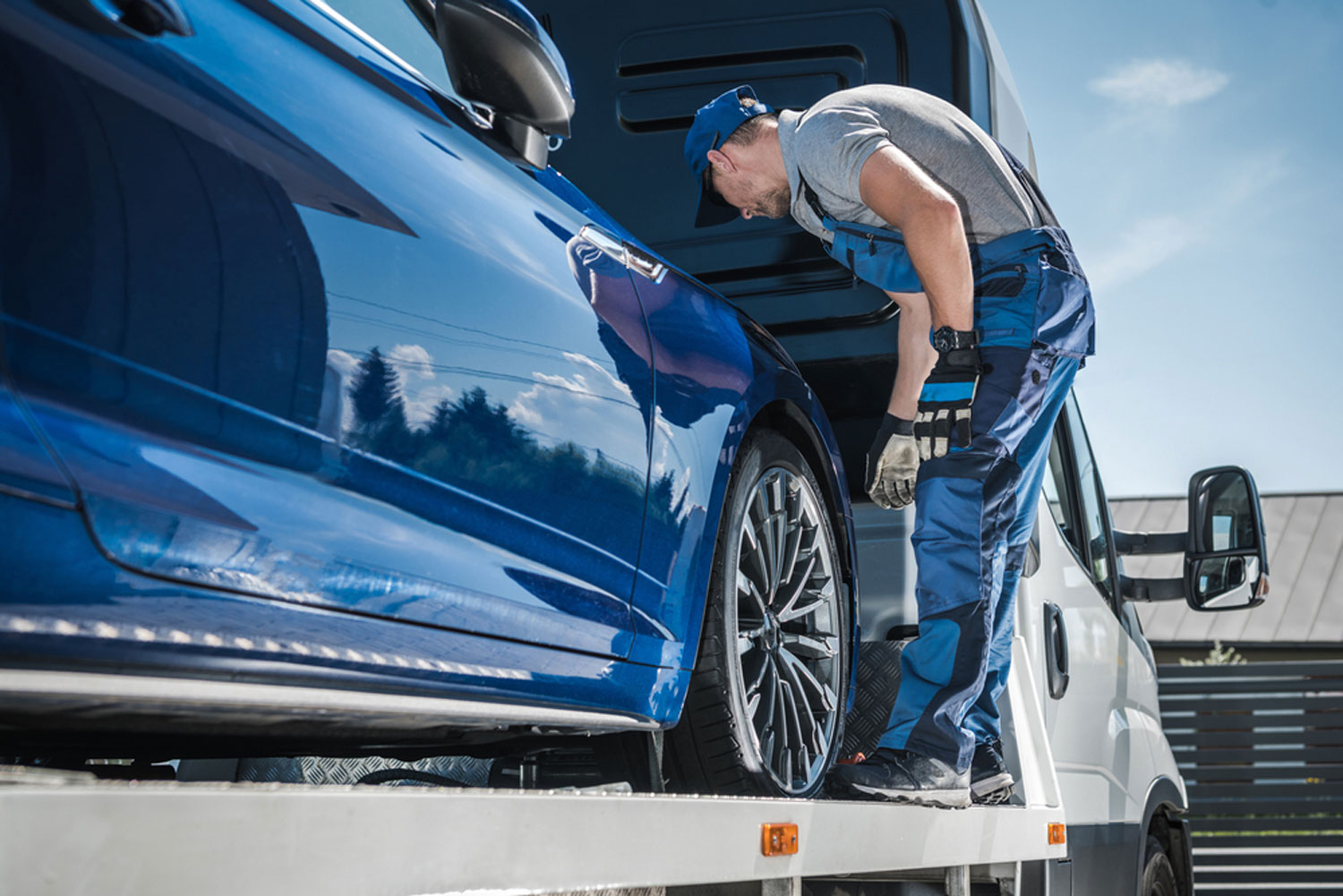What Happens When Your Car Is Repossessed?
Learn what steps to take after your car is repossessed and how you can get it back.
 Shutterstock
Shutterstock
Owning a car can be expensive. The average monthly payment on new car loans has increased to $609, and the average monthly payment for used car loans has increased to $465.
Plus, with gas, insurance, and maintenance, it's no surprise that people occasionally fall behind on their loan payments, and their car is repossessed. But what happens after your car is repossessed, and what steps can you take to get it back?
What Is Car Repossession?
When you sign an auto loan, you take on the legal responsibility to make monthly payments on time and keep adequate insurance. If you become delinquent or late on the payment by more than 30 days, or if you don't have adequate insurance, the lender has the right to retrieve or repossess their property (your car).
Car repossession laws vary by state, with some states requiring that lenders give the borrower some notice of their missed payments and the possible consequences, including the intent to repossess the car.
What Steps Can You Take After Repossession?
1. Call your lender
It could be an administrative error, or your payment could just be stuck in the mail. In any case, call your lender as soon as you notice your car's repossession to sort out all the details and discuss possible resolutions.
2. Get your personal possessions back
It's important to remember that even if your car is repossessed, you still have rights. The repossession agency can't keep any personal possessions found in the vehicle. Since cars typically go to the auction within 30 days, you'll need to recover your personal items before then. Your lender should provide you with information on how you can retrieve those personal items.
3. Reevaluate your finances
If your finances are strained to begin with, you might want to walk away rather than try to get your car back. Be truthful with yourself and ask yourself if you can really afford to own this car. Are there other areas of your budget you can cut back on to avoid this situation in the future?
How Can You Get Your Car Back After Repossession?
You can get your car back after repossession in a few ways:
- You could pay off the total loan in full, along with any associated repossession costs
- A lender might be willing to reinstate the loan and set up a payment plan to help you catch up on your missed payments, plus repossession costs
- You could file for bankruptcy, which would prevent the sale of the car at an auction. This would allow you to keep the car while a payment plan is worked out
- If the car has gone to an auction, you could attend the auction and bid on it to get it back. If you have the winning bid, the car will be yours without any further payment. However, there will likely be some associated costs (see below)
Keep in mind that even if you're able to pull together enough money to get the car back, a repossession seriously damages your credit. A repossession will show up on your credit report for seven years and can lead to a lower credit score.
Do You Still Owe Money After a Repossession?
If you don't get your car back and it's sold at an auction, that's not the end of your financial obligation. If the auction sale price is less than the balance owed on the loan, you'll need to pay the remaining balance, known as the deficiency balance. You may also be responsible for any costs related to the repossession process, and any repairs needed to prepare the car for sale at an auction.
How Can You Avoid or Minimize the Impact of Repossession?
One easy way to avoid repossession is to communicate with your lender as soon as you suspect you won't be able to make a monthly payment. Lenders have hardship programs and other loan modification options to help borrowers get through difficult financial situations.
If your lender won't agree to modify the loan, you could agree to surrender the car or "voluntary repossession." This could save you the cost of any repossession fees, but you may still be responsible for paying the remaining loan balance and any fees associated with selling your car at an auction. Additionally, the lender could still report the late payments or repossession to the credit bureaus and impact your credit score.
Life After Your Car is Repossessed
Having a car repossessed is one of life's more unfortunate events, and no one—not the lender and certainly not the borrower—wants to be in that situation. But if you do find yourself getting behind on car payments, there are options. Being honest with yourself about your financial situation and communicating with your lender are the best ways to avoid having your car repossessed.
Written by humans.
Edited by humans.
 Sheryll Poe
Sheryll PoeSheryll Poe is a journalist and freelance writer based in Washington, D.C. where she writes about the latest news and trends in the automotive, finance, retail, and technology industries. With over two decades of experience, Sheryll has bylined hundreds of stories for websites, magazines, newspapers for trade associations and business clients. When not wielding words on behalf of clients, she enjoys cooking (and eating), watching bad reality television, and traveling the world.
Related articles
View more related articles